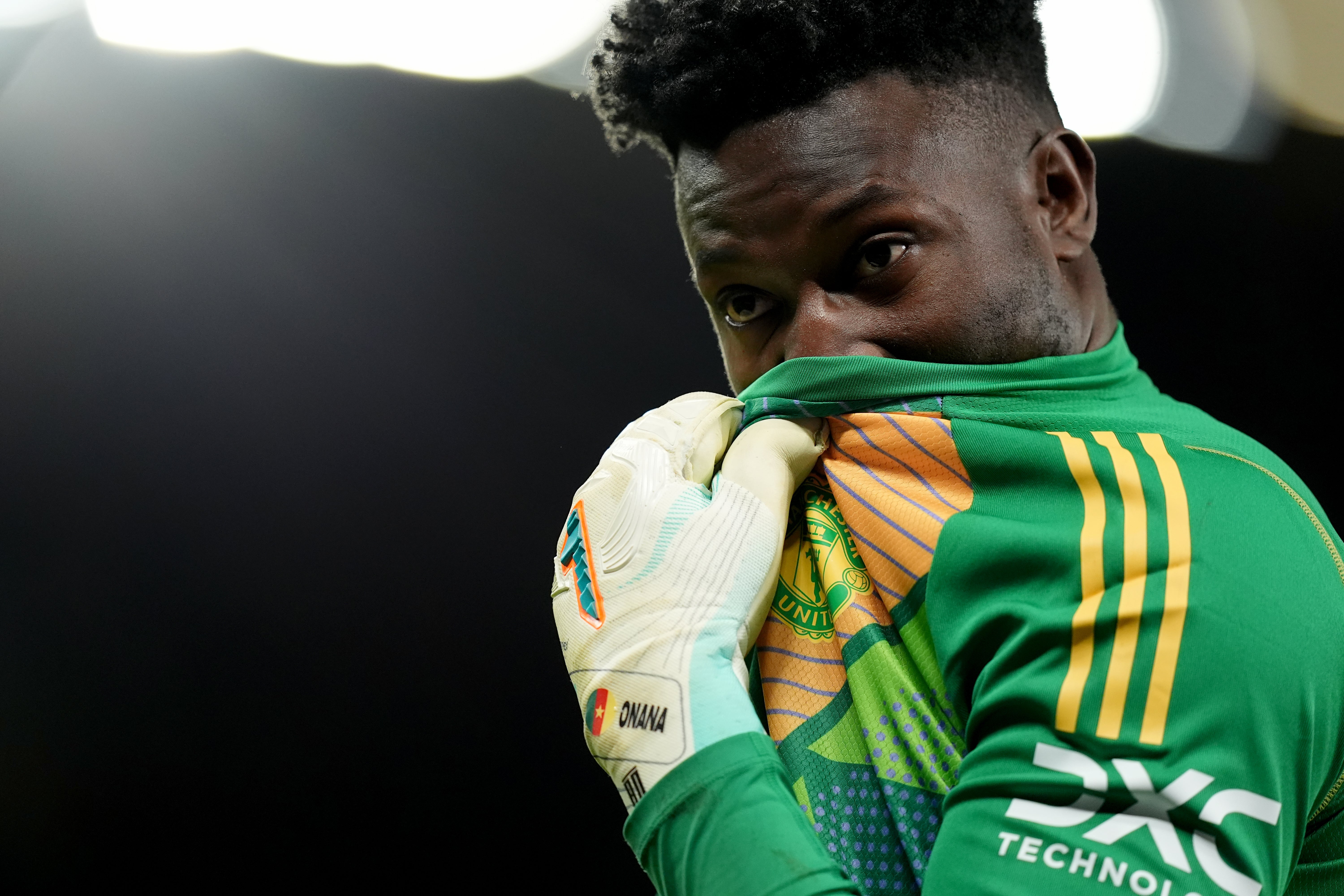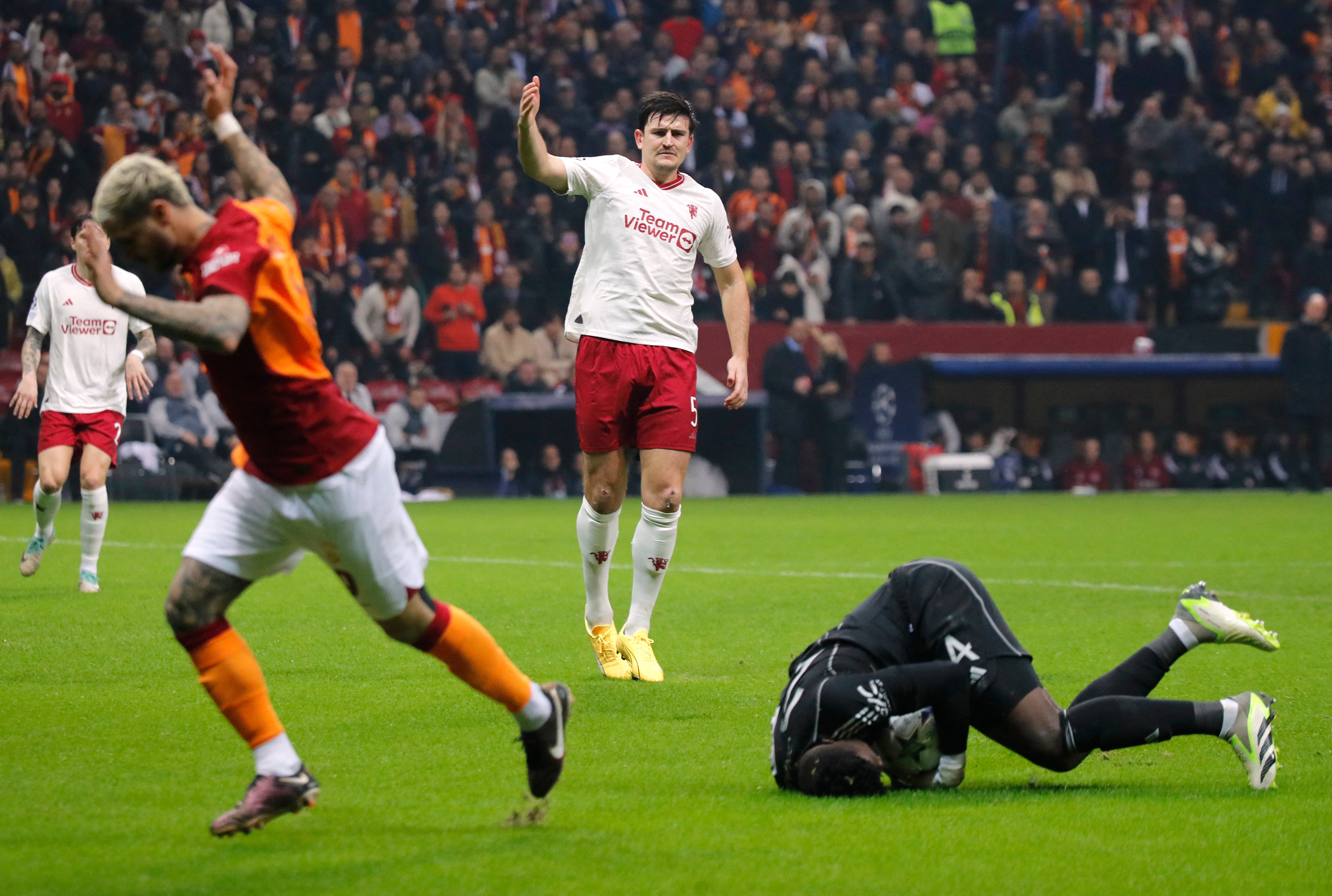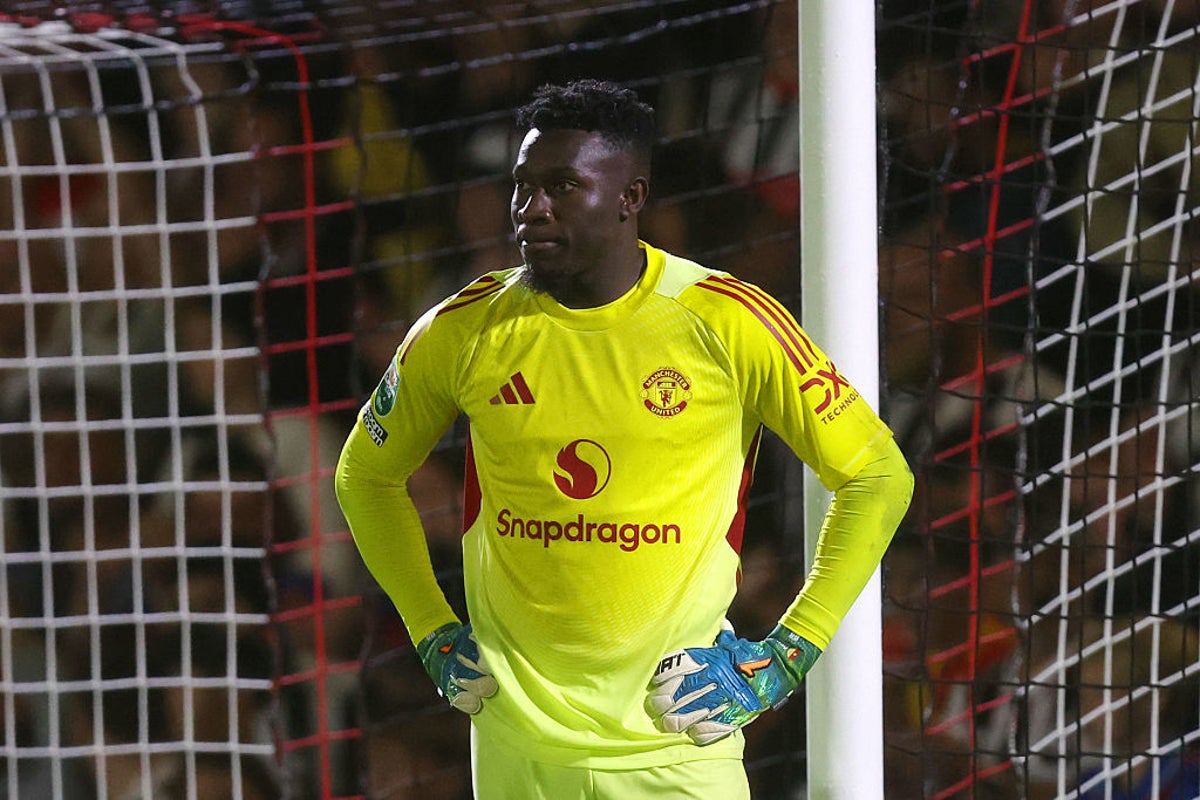Andre Onana’s last game for Internazionale was a Champions League final. What may forever prove his last match for Manchester United was a Carabao Cup defeat to Grimsby, where he was horribly to blame for one goal, scored a penalty and saved another but, with strangely weak wrists, contrived to get his hands to several others without keeping them out.
By themselves, those two appearances can indicate an ignominious fall from grace. The intervening two years were pockmarked by pratfalls. Onana joined United as the third most expensive goalkeeper ever. He has left on loan, with three years remaining on his contract at Old Trafford but with the suspicion that, like Antony or Jadon Sancho, it is in effect an end, a question merely of how many times he is exiled temporarily before United can offload him permanently.
His replacement thus far this season has been his error-prone understudy, Altay Bayindir. His successor seems to be the new signing Senne Lammens. The rookie is Belgium’s fifth-choice goalkeeper. Onana is joining the team that finished seventh in Turkey last season, Trabzonspor. His salary there will be tax free so, for him, some good will come of it. In every other respect, however, his time at Old Trafford has been a hubristic failure.

There were excellent saves and spells of fine form – indeed, he was arguably United’s best player in the first few months of last season – yet a blunder was rarely far away. It was felt that Onana never properly recovered from a wretched start. In his first outing at Old Trafford, before he had even played a competitive game, he was beaten from 50 yards by Lens’ Florian Sotoca.
In his official debut, he escaped without conceding a penalty when he punched Wolves’ Sasa Kalajdzic in the head in injury time. In his second league game on home soil came a goal that, like some others that were to follow, felt almost inexplicable, with Onana contriving to sit himself down before Taiwo Awoniyi shot to give the Nottingham Forest striker a still simpler task to beat him.
There was, it seemed, something about Forest: the following year, Morgan Gibbs-White’s shot entered the net in the middle of the goal, as if Onana was beaten by some vicious deflection, but there was none. There was something about Galatasaray, too, which may bode badly for his time in Turkey: the poor pass that led to Casemiro’s red card at Old Trafford, the two errors in Istanbul, the worst allowing Hakim Ziyech’s free-kick to squeeze under him.

United are left to count the cost of mistakes, both theirs and his. In the era of group stages, few players have been more culpable for their club’s Champions League exit than Onana in 2023-24; the best goalkeeper in the Champions League the previous year – as he called himself once on camera – was at fault for five goals, starting with two away against Bayern Munich. Showing a sense of responsibility, the Cameroonian came out to apologise; maybe, however, his bad days became too frequent for him to adopt that attitude every time he erred.
It was arguably United’s worst ever European campaign. If Onana’s form could vary by the competition, Erik ten Hag sought solace in a selective interpretation of the statistics. And, taken in isolation, Onana’s Premier League numbers could look impressive. In 2023-24, he made both the most saves and with the best save percentage. Over two years in the division, however, no goalkeeper made more errors leading to goals than Onana, with eight: one of the most grievous was when his future teammate Matheus Cunha’s corner for Wolves sailed straight in.
That was part of the issue with Onana: the mistakes tended to be so bad. Whereas some goalkeepers make themselves appear bigger than they are, he, already among the smaller ones, contrived to seem smaller still, weaker and less convincing. One explanation for his signing was that, unlike his predecessor David de Gea, he was a footballing goalkeeper: but just as he wasn’t good enough with his hands for United, nor did he add another dimension with his feet.
It may have hindered him that Lisandro Martinez, the most accomplished in possession of their centre-backs, started only 36 of his 102 games for the club. Perhaps United lacked a sufficiently coherent style of play to suit him.

Yet the verdict from their past was damning. Before the Europa League quarter-final, Lyon’s Nemanja Matic branded Onana “one of the worst goalkeepers” in the club’s history. The Serb could have been playing mind games, provoked by Onana’s ill-advised suggestion that United were “way better” than Lyon or just a De Gea loyalist, but Onana was duly at fault for two more goals.
If Ruben Amorim did not concur, he appears to have belatedly deemed a £47m signing a weak link. He offered confused, conflicting explanations for preferring Bayindir against Arsenal, when the deputy duly floundered for the only goal.
Arguably, Amorim compounded the mess by not acting sooner, by leaving the goalkeeping department to the end of his summer business. Yet Onana’s struggles at Old Trafford represent a far greater indictment of his predecessor. He will be the fourth Ten Hag signing loaned out in 2025, after Rasmus Hojlund, Tyrell Malacia and Antony. Paying so much for Onana was all the odder because he was available on a free transfer a year earlier.
Then it looked like a waste of money; now it seems still more of one. Another awful Ten Hag signing, a player designed to solve a problem but who instead worsened it, Onana became the face of the modern Manchester United. Just not in the way he was intended to.


